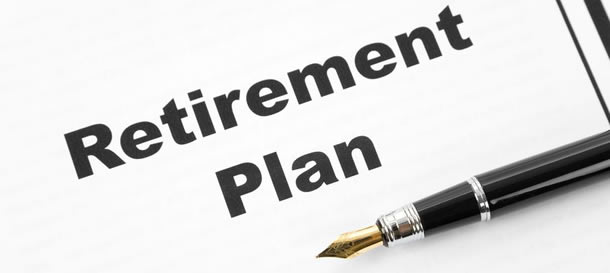
by | | The Blog
I just Googled “Social Security” and got 1.08 billion hits. Needless to say, it’s a hot topic. Without even clicking on those links, I know what most of them have in common.
It’s not good.
As most of us know, Social Security began as a measure to implement a “social insurance” of sorts during the Great Depression, when more than half of our seniors were living in poverty. Unfortunately, as with most government programs, it has become a mathematically unsustainable safety net that too many people have relabeled “retirement plan.”
My advice, at least for those of us still in the workforce, is this: If you’re planning on Social Security to be your main retirement income, don’t. It was never created for that purpose and the numbers simply don’t and won’t add up. In fact, if it were just another investment option, it would be regarded as the worst.
I can already hear people saying, “I’ve been paying FICA most of my life and that money is mine!”
Sure. Maybe. Some of it. Maybe.
Our parents and grandparents got a great return on their investment in Social Security — seven times more in benefits than they’d paid in, if they retired in 1960 and lived to 78 (men) or 81 (women.)
As recently as 1985, workers at every income level could retire and expect to get more in benefits than they paid in Social Security taxes.
Today, retirees are actually receiving less than they paid in, according to Urban Institute, a Washington think tank. And with the gargantuan baby boomer generation hitting retirement age this year, expect our beleaguered Social Security system to start crumbling at the knees.
Social Security’s trustees say the money will be gone – despite what comes out of our paychecks — in 2033. At that point, payroll taxes will provide enough revenue each year to pay about 75 percent of benefits.
Bottom line is this: When planning for retirement, it’s best to assume that you won’t get a dime of Social Security. You need a good backup if you hope to be eating more than cat food when you’re 85.
If, by some miracle, a solution to Social Security can be devised and the program still exists when you retire, then you can treat yourself to a nice night out for some people food.

by | | The Blog
You almost never hear “student loans” and “Social Security” used in the same conversation, let alone the same sentence. Until now.
It seems there are a lot people who’ve fallen behind on their student loans.
Way behind.
How far? Some of them are grandparents old enough to receive Social Security benefits. Except that some of them won’t. Not all they expect, anyway. The federal government is withholding up to 15 percent of the monthly checks from a rapidly growing number of recipients, according to the Treasury Department,.
Some of the student debts don’t date back to when the retirees were young adults. Some are from loans taken out for a child’s or grandchild’s education, while others came from a midlife return to college. But all of that is beside the point. When enough individuals get into a financial predicament, it becomes a crisis that we as a country are forced to deal with.
Taken from a micro-economic standpoint, it’s easier to understand the particulars. If you borrowed $100 from a friend a year ago, and then treated him to a movie yesterday, you couldn’t possibly expect him to pay you the 10 bucks for the flick today. He’s been gracious enough not to break your thumbs for taking this long to pay him back in the first place. You should never borrow money unless you know when and how you’ll pay it back.
People nowadays use loans (and credit cards for that matter) irresponsibly. They spend the money now with no thought to paying it back. And with terms like forgiveness, amnesty and bailouts, why shouldn’t they? Where’s the risk? If your neighbor can simply declare bankruptcy, why should you bust your hump to pay the bills?
No doubt this story will inspire calls to forgive grandma and grandpa their federal student loans and be done with it. No big deal, the money is guaranteed and the government will get it from somewhere.
They’ll get it from the rest of us.
Is it any wonder that a federal government that spends money it doesn’t have, accrues debt it can’t pay back, and as we’ve seen recently, suffered a drop in its credit rating, has a growing population who behaves the same way?
We need to take responsibility for our own personal success, our failures, and most importantly our debts and debtors. Otherwise we are destined to get crushed under the weight of our own good intentions.

by | | The Blog
24/7 Wall Street has come out with their annual list of top America brands they predict will disappear. Whether it is obsoleteness, the terribly competitive nature of their industry or just bad planning, this year’s brand drop out list is very compelling.
A lot of factors can contribute to a company or brand making this embarrassing list. Ever increasing costs that are likely not going to be recouped by price increases alone are just one of the factors 24/7 Wall Street considers when assessing the impending demise of a company or brand.
Here is just some of what they found plus some insightful information as to why.
Avon (NYSE: JNJ)
They say, “It would be hard to find another large American company as bad off as Avon Products.” Plainly put, the market has no confidence in Avon. Their stock has dropped from $43 to below $16 in recent years and many believe they are a huge takeover target. In fact, with the backing of warren buffet, Perfume Company Coty offered Avon a buy out deal at almost 20% above their stock price. Avon however didn’t jump on the offer and Coty withdrew. Avon has spent some $800 million in restructuring costs in 2012, are under fire from the SEC regarding whether their Chinese operations are compliant with the Foreign Corrupt Practices Act. With their dwindling public sentiment and in their highly competitive environment, they are likely to be overtaken.
Suzuki
American Suzuki Motor Corporation sold just 10,695 cars and light trucks through May of 2012. This number is a very sad 3.9% below last years same period sales. Worse yet, a 2012 JD Powers survey ranked them below nearly every other manufacturer for power-trains, dependability, material and bodies plus accessories and features. Even Despite 0 percent financing for 72 months and other very aggressive incentive and sales efforts, they are stifled by poor consumer confidence in their products and their market share is not significant enough to keep the lights on. Bye-Bye American Suzuki Motor Corporation.
American Airlines (NYSE: LCC)
After filing for Chapter 11 late in 2012, American’s parent company AMR said the carrier would emerge as a viable airline, but probably not. Earlier this month US Airlines made it clear again they want to absorb American’s assets and merge the two carriers, an announcement that has bond holders, analysts, creditors and unions very excited. That merger could be the only thing to save American as they continue to see their market share dwindling by the mergers of Northwest and Delta as well as United and Continental. AMR will need the US Airlines merger to offer their creditors a fair deal; they should take it while they have the chance.
Al Gore’s Current TV
This propaganda machine had one thing going for it and they let it slip away. Keith Olbermann was the only thing keeping their life support mechanism in place for the channel. Following a series of disagreements, Olbermann was replaced Eliot Spitzer resulting in a 70 percent decline in audience. Yes, 70 percent. The only star recognition the channel has now is Joy Behar, a former member of The View who was recently dumped by CNN Headline news last November. Reuters recently reported that the Current audience has fallen to such a significant level that cable monster Time Werner may be within its right to discontinue carrying the channel. It is widely accepted that Gore has neither the cash nor ability to fund a looser TV venture. Good bye Current TV, you wont be missed.
Just as 24/7 Wall Street is running this report on companies that need to change or die a slow death, there may be things you need to look at within your finances that need to change so you can win the money game as opposed to dying a slow financial death. Sometimes it can be as simple as a shift in the way you view your money.
As a financial adviser, I have found that my clients have in some cases needed to make a “shift” in their thinking in order to achieve the financial goals. Years of financial failure, followed by success then failure then more success, led to me to personally making the “necessary shift” to achieve my financial goals. Several years of experimenting with what works and what does not work as it relates to achieving financial success led not only to personal financial victory for myself, but for the clients I serve as well. That process has led to the birth of my book, Winning The Money Game: Separating The Myths From The Truth.
The moral of the story – Never give up, learn from others, be inspired and always walk through life with an open mind, making the “shift” whenever necessary.

by | | The Blog
Billionaire Mark Zuckerberg made news recently not because of the value of his stock in Facebook but because he refinanced his $5.95 million mortgage on his Palo Alto, California, home with a 30-year adjustable-rate loan starting at 1.05 percent. So the obvious question I keep hearing folks ask is why does a Billionaire like Mark need a mortgage on his home? Why doesn’t he just pay it off in cash?
Well that my friends is indeed the million dollar question. The answer though lies in the fact that Mark ascribes to my definition of being debt free. Unlike most financial gurus that would have you to believe all debt is bad, I completely disagree with them. I’m a firm believer that there is good debt and there is bad debt. Bad debt is any debt that does nothing to increase your personal net worth and that also does not provide you with any tax savings in the form of a mortgage interest deduction. Good debt on the other hand is any debt that either helps to increase your personal net worth or that provides you with tax savings of some sort.
With that as a backdrop, you can see that a mortgage fits the description of good debt. That being said, I am the biggest proponent out there of you being debt free. The only difference may lie in how you define being debt free versus how I define it. If you are like most people, your definition of being debt free is having absolutely NO debt whatsoever. While that may be a true definition of being debt free, if there were a more efficient method to be debt free would you want to know about it?
You see, my definition of being debt free is eliminating all forms of bad debt and accumulating a pool of funds that are liquid, that you have use and control of, and that can afford you collateral capacity on those funds, such that if it were ever a prudent decision for you to pay off the good debt that you have, you could do so with the stroke of a pen by writing a single check. If you take a peek at what Mark is doing, you will see that he is definitely doing this. Another question I ask people is which one of my two clients would you rather be? Client A has accumulated $12 million in assets, has $2 million in good debt and has a Personal Net Worth of $10 million. Client B on the other hand has accumulated $2 million in assets, has paid off all of his debts and has a Personal Net Worth of $10 million. Both clients are Debt Free but the question is which client would you rather be? I don’t know about you but I’d rather be Client A any day of the week which by the way describes our Facebook founder. So what other lessons can young Mark Zuckerberg teach us? Here are a few:
Time Value of Money Lesson:
When you factor inflation into the equation, you quickly realize that $1,000 mortgage payment today at 3% inflation is only worth about $300 thirty years from now. With that in mind, the question is when is your money most valuable to you…today or sometime in the future? This one is not a trick question. The answer is obviously today. So if you have to give up liquidity, use and control of your money, when would you rather do that? Today when you money is most valuable to you or sometime in the future? Obviously sometime in the future. That is why taking out an interest only loan and deferring the payment of principal owed to the bank until sometime much later in the future is a prudent money lesson you should pay attention to.
Leverage Lesson
I’m not sure how much Mark paid for his home but the fact that he has a loan on his home leads me to the conclusion that he did the smart thing when he paid for his home which was not to pay cash for the home. Leverage is the advantageous condition of having a relatively small amount of cost yield a relatively high level of return. It is also defined as the use of borrowed capital to increase the potential return of investment. This is easily seen in a real estate transaction. If I purchase a home for $100,000 Cash and it appreciates to $200,000 and I sell the home, I make a 100% return on my investment ($200,000 divided by $100,000). If I only put $20,000 down and finance $80,000 and still sell the home for $200,000, I now make a 500% return on my investment ($100,000 gain divided by $20,000). If however I was fortunate enough to obtain 100% financing on the home and I put nothing down but I am still able to sell the home for $200,000, I now make an INFINITE return on my investment. Keep this in mind the next time you but a home as your goal should be to put as little down as possible. The day you see the banks offering interest only 40 years loans, I’ll gladly spend the night at their doorstep just to be the first one to get that mortgage! You may think I’m joking but I’m dead serious!
Liquidity, Use and Control (LUC Factor) Lesson:
To be financially successful in life, I tell my clients they’ll need a lot of LUCK. It’s an acronym for liquidity, use, control, collateral capacity and the” knowledge” of what to do with your money once you’ve maintained liquidity, use, control and collateral capacity on those funds. Had Mark paid $6 million in Cash to purchase his home and the value dropped to $3 million as a result of the housing crash that we are still trying to recover from, how liquid is his original $6M investment in his home? Not very liquid. As a matter of fact, it’s now only worth $3M. Who has use and control of his money? Well, the “Real Estate gods” and the “Bank” do. The Real Estate gods are those that control supply and demand for real estate based on where it is located which by the way happens to be you and me since we determine how much we are willing to pay for real estate based on where it is located. The Banks maintain use and control of his funds because they were the recipients of the $6M payment when he purchased the home. They are also the ones that determine if he can get access to what he would call “his equity” should he trot back into the bank and ask for a loan. Paying cash for a house violates a very core economic and financial principle I teach my clients which is that at all times, CASH is KING so you must do everything you can in the way you manage or invest your money to make sure you maintain liquidity, use and control of your funds.
Collateral Capacity Lesson:
In addition to realizing that CASH is KING and that you must maintain liquidity, use and control of your funds, there’s another lesson worth mentioning. Where ever you have those funds deposited MUST afford you the opportunity to put them up as collateral to be able to borrow someone else’s money to create even more wealth for yourself. Real Estate investors have long coined the phrase “OPM” which stands for “Other People’s Money.” By having your fund in an account that creates collateral capacity on those funds by allowing you to put those funds up as collateral to borrow other people’s money, you now put yourself in the same positions banks are in to earn what is referred to as “the spread” or “arbitrage profits.”
The Spread or Arbitrage Profit Lesson:
The spread or arbitrage profits refers to the amount of money that can be made on the difference between the cost of borrowing versus what can be earned on those borrowed funds. This is one way that banks make a ton of money. For the right to have a relationship with a bank, they offer you interest for the money on deposit at the bank. In 2012, you are not getting much in interest from the bank but let’s just say for purposes of this example that’s 1% in interest. When I show up at the bank seeking a loan to buy a new home, they charge me interest for the right to use their money and let’s say the average rate right now in 2012 is 4%. We know this rate depends on credit ratings etc but 4% is a good round number. Thus, the banks are earning the spread of 3% which is the difference between the cost of using other people’s money (bank depositors) versus what they can earn on that money (mortgage lending). What about if I apply for a credit card from the bank that has a 16% interest rate. Now the bank is making a spread or arbitrage profit of 15% (16% – 1%) on any credit card lending they do. This ladies and gentlemen is a very profitable way to grow wealth and is probably the number one reason Mark Zuckerberg decided to get a 1% loan from the bank. Mark knows that by maintain the LUC factor and collateral capacity on his money, he can use other people’s money (the bank) at much lower rates (1% in this case because he’s a billionaire) and earn a higher rate of return on his money that is invested elsewhere. This is a very powerful money lesson that you should avail yourself of with your own money.
Velocity of Money Lesson:
You won’t get this lesson by reading the article on the Facebook Founder but it is one worth paying attention to as it is also a very powerful way to create wealth. Velocity of money speaks to the ability to get multiple investment uses out of the same dollar. It’s the equivalent of having $1 invested in two separate investments and reaping the benefits of what each investment yields. Banks are one of the only institutions out there that by virtue of the fractional banking system, get the opportunity to get up to 10 uses out of each $1 on deposit at the bank. By law, banks are only required to have $1 on deposit at the bank for every $10 you and I have on deposit. The net effect is that they gain the exponential power of getting 10 uses out of each $1 we have on deposit with them. And when you factor the ability to earn arbitrage profits of 3% or 15% as in the examples cited above, you see that this is a very lucrative way to exponentially grow money and create wealth.
The question to ask yourself is are banks the only ones that can benefit from these economic principles discussed above? The answer is NO. And if the advisor you are working with is not teaching you this and making sure that you are appropriating these same strategies in your financial plan, then he is doing you a great disservice. All of these principles discussed above are what I refer to as the economic and financial principles and wealth building formulas for winning the money game. They are discussed in Chapter 2 of my Amazon Best Selling book, Winning The Money Game: Separating The Myths From The Truth. Everything You Don’t Know About Achieving Financial Independence.
Once you’ve realized that your money is most valuable to you today and you orchestrate your finances in such a manner that you are always maintaining liquidity, use, control and collateral capacity on your funds, you now set yourself up for the right opportunities and strategies to create arbitrage profits while experiencing the velocity of money. These same strategies are the strategies I employed to turn my finances around and go from a personal bankruptcy in 2003 to becoming the youngest advisor to achieve financial independence in my industry when I became financially independent in 2008, at the tender age of 34. My mission and passion is to help clients do the very same thing and experience the benefits of being financially independent and living an abundant life.

by | | The Blog
I’ll admit that I know nothing about what your particular retirement plan looks like. However, if it is like most of the prospective clients I meet with where the bulk of your assets are in a 401K or an IRA, then suffice it to say the grade you’d be getting from me is an F. So why am I so harsh on 401k’s and IRA’s? I’ll share one reason why with you in this article and more in follow ups I do to this article. (more…)

by | | The Blog
You don’t have to be a high school kid to feel the pressure to be popular. Cliques are formed in high school, in college, on the job, and even at your local church. What is it within us that drives us to want to be popular, to want to be mainstream, and to not want to be different? Is it our internal desire to be accepted? Perhaps. We all have a desire to be loved and accepted. However, when does that desire to be accepted affect your money? That’s the question we want to answer.
(more…)







Recent Comments